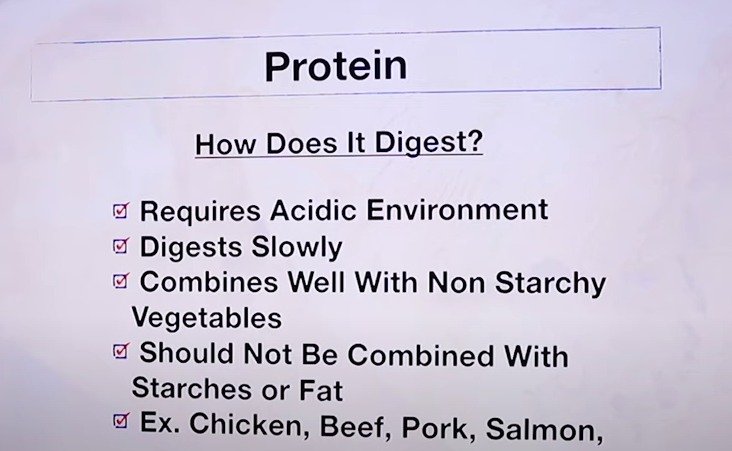Understanding the Importance of Food Combining
The practice of food combining is not merely a passing trend but a scientifically grounded approach to selecting compatible foods for efficient digestion. By choosing foods that work well together, digestion becomes smoother, ensuring post-meal comfort.
Delving into the Process of Digestion
Digestion involves more than just breaking down food chemically or physically; it’s a complex physiological process. As food enters the body, it undergoes various transformations before being assimilated. Proper digestion is essential for the body to absorb nutrients effectively.
Exploring the Role of Digestive Juices and Enzymes
Digestion relies on a series of juices and enzymes that alternate between alkaline and acidic environments. These enzymes are tailored to specific acid-alkaline ranges, ensuring efficient breakdown of food components. However, combining incompatible foods can disrupt this delicate balance, leading to digestive issues.
Unveiling the Impact of Food Combinations on Digestive Health
Combining incompatible foods, especially at a single meal, can contribute to 90% of digestive disorders. Certain combinations lead to gastrointestinal fermentation, causing discomfort and bloating. Optimal digestion is achieved by consuming foods of similar types together, allowing for smoother processing.

Key Rules for Successful Food Combining
- Avoid Mixing Protein and Carbohydrate Concentrated Foods:
- Protein-rich foods require longer digestive time and should not be mixed with starch or sugar-concentrated foods to prevent fermentation and indigestion.
- Separate Proteins and Fats:
- Consuming proteins and fats together inhibits gastric juice secretion, delaying digestion. It’s best to consume them separately to optimize gastric function.
- Steer Clear of Combining Carbohydrates and Acidic Fruits:
- Acidic fruits can halt the action of starch-splitting enzymes in saliva, leading to digestive disturbances. It’s advisable to avoid mixing these foods in the same meal.

Optimizing Meal Composition for Digestive Wellness
Simple, one-course meals are preferable for promoting digestive health over elaborate, multi-course meals. Consuming different food types at separate meals allows for efficient digestion and absorption of nutrients.
Crafting an Ideal Meal Plan
- Breakfast: Start the day with a fruit-based meal for quick digestion.
- Lunch: Opt for a starch-based meal accompanied by salads and non-starchy vegetables.
- Dinner: Conclude the day with a protein-rich meal, paired with salads and non-starchy vegetables.
Does Food Combining Work?
Food combining, a practice rooted in ancient philosophy, has garnered significant attention in recent years. Advocates claim that improper food combinations can lead to various health issues, while proper combinations can alleviate digestive problems. But how valid are these assertions? Let’s delve into the research to discern the efficacy of food combining.
Understanding Food Combining
Food combining revolves around the notion that certain foods harmonize well together, while others create disharmony. Originating from Ayurvedic medicine, this concept gained traction in the mid-1800s as “trophology” and resurfaced in the early 1900s through the Hay diet. Today, it remains popular in health and wellness circles.
Principles and Guidelines
Food-combining diets categorize foods into groups such as carbs, fruits, vegetables, proteins, and fats. Common rules include:
- Eat fruit alone or on an empty stomach, particularly melons.
- Avoid combining starches with proteins or acidic foods.
- Consume dairy products separately, especially milk.
These guidelines aim to optimize digestion and health by preventing purported negative interactions between foods.
Beliefs Driving Food Combining
Supporters of food combining base their principles on two main beliefs:
- Variation in Digestive Speeds: Different foods digest at varying rates. Combining fast and slow-digesting foods allegedly disrupts digestion, leading to health issues.
- Enzyme Specificity and pH Levels: Foods require specific enzymes to break down, and these enzymes function optimally at different pH levels. Misaligned pH requirements hinder efficient digestion.
Adherents assert that improper food combinations can cause toxin buildup and contribute to digestive ailments and disease.
What Does the Research Reveal?
A lone study from 2000 explored the effects of food combining on weight loss. Participants following a food-combining diet showed no significant advantage over those on a balanced diet. Moreover, scientific evidence largely contradicts the principles of food combining, highlighting its antiquated roots.

Debunking Food Combining Myths
- Mixed Meals Digestion: The body is adept at digesting mixed meals containing carbs, protein, and fat, as evidenced by human evolutionary history.
- pH and Enzyme Function: While enzymes operate optimally at specific pH levels, the body maintains homeostasis, adjusting pH as needed for digestion.
- Stomach Fermentation: Contrary to claims, the stomach’s highly acidic environment prevents food from fermenting, with fermentation occurring in the large intestine instead.
Conclusion
By adhering to the principles of food combining, you can optimize your digestive health and enhance overall well-being. Selecting compatible food combinations and structuring meals appropriately can lead to improved digestion and greater comfort after eating.

Frequently Asked Questions (FAQs)
- Can food combining improve digestive issues?
- Yes, by avoiding incompatible food combinations, you can reduce the risk of digestive disorders and promote smoother digestion.
- Are there specific foods that should never be combined?
- Yes, it’s best to avoid mixing protein-rich foods with carbohydrates or acidic fruits to prevent fermentation and discomfort.
- How long should different types of meals remain in the stomach?
- Protein, carbohydrate, and fat-rich meals have varying digestion times, with protein meals typically staying in the stomach the longest.
- Why are one-course meals recommended for digestive health?
- Simplifying meal composition reduces the strain on the digestive system, allowing for more efficient processing of food.
- What benefits can I expect from following a food combining approach?
- Improved digestion, reduced bloating, and enhanced nutrient absorption are among the potential benefits of practicing food combining.